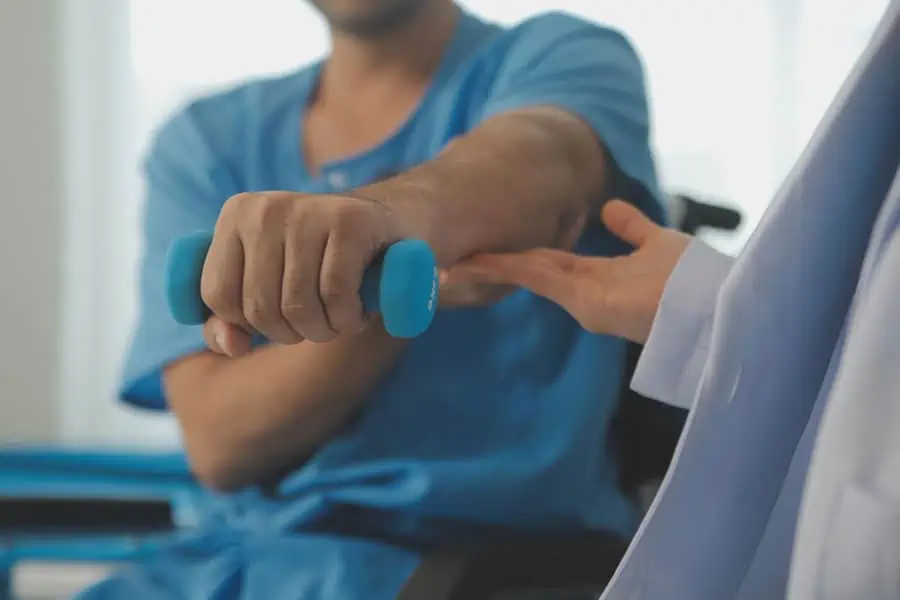
Temporomandibular joint (TMJ) disorders can cause debilitating jaw pain and TMJ disorder, negatively impacting overall quality of life. If you suffer from common TMJ symptoms like severe jaw pain, popping/clicking sounds, limited jaw function, and chronic headaches, you may be experiencing a temporomandibular disorder (TMD). The good news is that chiropractic care offers a safe, non-invasive approach to finding relief from these disruptive TMD symptoms.
In this comprehensive guide, we will explore how chiropractic treatments can help alleviate TMJ disorders, restore proper jaw function, manage associated jaw pain and neck pain, and prevent further complications. We aim to educate on the holistic benefits of chiropractic care so you can make informed decisions regarding your TMJ treatment options. At The Right Spinal Clinic, our experienced chiropractors develop personalized plans to tackle TMJ disorders at their root cause for lasting relief.
Chiropractic Care for TMJ: A Holistic Approach
Chiropractic medicine focuses on the health of your entire body by addressing misalignments and dysfunctions of the musculoskeletal system. It centers on the intimate relationship between your cervical spine and nervous system and how restoring proper alignment via chiropractic adjustment can improve nerve communication and healing.
For TMJ disorders, chiropractors use a combination of techniques like spinal adjustment, manual therapy, and soft tissue therapy to realign the cervical spine, relax tight jaw muscles, and address other contributing factors. This holistic approach sets chiropractic care apart from traditional TMJ treatments like pain medication, mouth guards and surgery - which only temporarily mask symptoms.
Chiropractic Treatment Techniques:
Spinal adjustments: Chiropractors perform precise manipulations called chiropractic adjustments to improve spinal alignment. To treat TMJ, adjustments are made to the upper neck vertebrae to restore mobility and reduce nerve irritation to alleviate pain in the temporomandibular joint and jaw muscles.
Manual therapy: Techniques like massage, trigger point therapy, and mobilizations are used to loosen tight jaw muscles and neck muscles. This helps relieve muscle tension, spasms and referred pain.
Soft tissue therapy: Methods like instrument-assisted soft tissue mobilization and stretching target muscles affected by TMJ like the masseter, temporalis and lateral pterygoid. This decreases restrictions and hypertonicity that lead to temporomandibular joint disorder.
How Chiropractic Care Addresses TMJ Symptoms
The interconnected focus of chiropractic care is used to treat TMJ pain naturally and prevent the development or worsening of chronic pain. It is highly effective in managing the diverse symptoms of TMJ dysfunction in the following ways:
TMJ Pain Management:
- Spinal adjustment and manual therapy relaxes tight jaw muscles and releases compressed nerves reliving referred pain - this is pain caused by an injury in one area of your body but that is felt somewhere else. In the case of TMJ disorder, this is experienced as migraine, ear pain, headache, neck pain, and muscle pain.
Improving Function:
- Correcting misalignments in the cervical spine allows for proper communication between the brain and the temporomandibular joint.
- Chiropractic treatment also increases mobility of the jaw joint, enhances jaw range of motion and reduces painful inflammation for improved function.
Preventing Further Injury:
- By addressing the root cause of your TMJ disorder, chiropractic treatment helps prevent additional wear-and-tear on the jaw joint and damage to surrounding muscles and ligaments.
- Ongoing adjustments help maintain a healthy spine-jaw relationship.

Additional Supportive Therapies and Lifestyle Adjustments
For best results, chiropractic care can be complemented by additional therapies and healthy lifestyle adjustments:
Complementary Therapies:
Chiropractic works well alongside other conservative therapies like physical therapy, massage, acupuncture, and dry needling. Your chiropractor for TMJ may advise specific exercises or stretches to do at home to enhance outcomes.
Lifestyle Adjustments:
Adopting targeted lifestyle changes can also optimize TMJ recovery under chiropractic care. Your chiropractor may recommend stress management techniques, jaw-friendly diet tips such as eating soft foods, proper sleeping positions, and postural corrections to support chiropractic treatment.
The Right Spinal Clinic Can Help
At The Right Spinal Clinic, our chiropractors have advanced training in safely and effectively treating TMJ disorders. We take time to understand your unique condition and goals to develop a customized chiropractic plan to fit your needs. By addressing the root cause of your TMJ dysfunction through specialized spinal and jaw adjustments, soft tissue work, TMJ pain relief techniques and lifestyle coaching, we can help you reclaim comfort and quality of life.
Don’t live with disruptive TMJ pain and dysfunction any longer – contact us today at (813) 392 2164 to schedule a consultation! Our holistic chiropractic treatment can help you find relief.
Temporomandibular Joint Dysfunction FAQ:
What Is TMJ?
TMJ refers to the temporomandibular joint that connects your jawbone to your skull. TMJ disorders, also called TMD, refer to any condition affecting one or both temporomandibular joints, causing TMJ pain and dysfunction of this joint and the surrounding muscles, nerves, and tissues.
What are the Signs and Symptoms of TMJ?
Common symptoms include:
- Jaw pain or soreness
- Clicking, popping sounds, or grinding noises when opening/closing the mouth
- Locking of the jaw
- Difficulty chewing or pain while chewing
- Headaches or migraines
- Earaches or tinnitus
- Jaw stiffness or reduced range of motion
- Facial muscle spasms
What Causes TMJ?
TMJ disorders can stem from a variety of factors, including:
- Injuries or trauma to the jaw, head, or neck
- Teeth grinding or clenching (bruxism)
- Arthritis in the jaw joint
- Excessive gum chewing or nail biting
- Stress and anxiety, resulting in frequent muscle tension in the jaw
- Structural misalignment of the jaw or neck vertebrae
- Missing or uneven teeth altering jaw alignment
A chiropractor can identify the underlying cause of your individual case through diagnostic methods like physical examination, imaging, and lab tests. Customized chiropractic treatment can then tackle the root issue for lasting TMJ pain relief and improved function.
Recent Posts











